





Run Off Road
Run-off-road crashes are common, especially in high speed areas. They occur at bends and on straight sections of road. In high speed environments they can have severe outcomes, particularly if an object is hit (for example trees, poles, pedestrians) or there is a steep embankment or cliff.
Research shows that the survival rate for a vehicle hitting an object head-on reduces dramatically above 70 km/h, while a vehicle side impact into a pole or tree is greatly reduced at speeds above 30 km/h. Therefore, the consequences of running off the road above this speed will often be severe. The consequences for motorcyclists can be severe at even lower speeds.
On the other hand, an errant vehicle dropping off the roadside can result in severe casualties due to rollover and deformation of the vehicle body. The consequences increase with the height of the fall and presence of water body or other hazards along the trajectory.
Public transport vehicles running off the road can result in multiple severe casualties due to increased tendency of rollover and severe deformation of the vehicle body. Passengers in these vehicles are often unrestrained and the bodies of these vehicles are relatively fragile.
Run-off-road crashes can lead to secondary events if an errant vehicle encroaches onto another road, a railway, or crowds of people. Collision with buildings, bridge piers, houses or other structures may lead to collapse or structural damages. Catastrophic secondary events can happen if dangerous goods vehicles run off the road.
Engineering treatments generally act to assist drivers to stay on the road (e.g. improvements to the road surface, advanced information about curves and their severity), alert drivers that they are leaving the road (e.g. rumble strips), improve the chance of recovering control of the vehicle if it does leave the road (e.g. shoulder treatments), or reduce the severity of the outcome if a vehicle does leave the road (e.g. clear zones, crash barriers and attenuators).
Typical factors which may add to run-off road crash risk include:
- Inappropriate speeds.
- Poor delineation, particularly at curves (especially where they are unexpected, or their severity is greater than expected).
- Lack of paved shoulders.
- Lack of safe roadsides and safety barriers.
- Poor pavement skid resistance.
- Driver/rider fatigue.
- Alcohol/drugs/medication impairment.
- Distraction, including inattention due to mobile phone use.
- Lack of vehicle safety devices.
- Poor condition of vehicle tyres, lights, brakes and brake lights.
Case Studies
| Name | Cost rating | Effectiveness |
|---|---|---|
| Delineation | Low | 10 – 25% |
| Lane Widening | Medium to High | 25 – 40% |
| Median Barrier | Medium to High | 60% or more |
| Realignment – Horizontal | High | 25 – 40% |
| Realignment – Vertical | High | 10 – 25% |
| Roadside Safety – Barriers | Medium | 40 – 60% |
| Roadside Safety – Hazard Removal | Low to Medium | 25 – 40% |
| Rumble Strips | Low | 10 – 25% |
| Paved Shoulder | Medium | 25 – 40% |
| Sideslope Improvement | Medium | 10 – 25% |
| Skid Resistance | Low to Medium | 25 – 40% |
| Speed Management | Medium | 25 – 40% |
| Traffic Calming | Medium to High | 25 – 40% |
| Name | Cost rating | Effectiveness |
|---|---|---|
| Motor Vehicle Standards | – | – |
| New Car Assessment Program (NCAP) | – | – |
| Used Car Safety Ratings | – | – |
| Safety Features and Devices | – | – |
| Vehicle Roadworthiness | – | – |
| Name | Cost rating | Effectiveness |
|---|---|---|
| Addressing Alcohol and Other Drugs | – | – |
| Education | – | – |
| Enforcement | – | – |
| Fatigue Management | – | – |
| Helmets and Protective Clothing | – | – |
| Licensing | – | – |
| Publicity | – | – |
| Safe Speed | – | – |
| Seatbelts | – | – |
Related Images
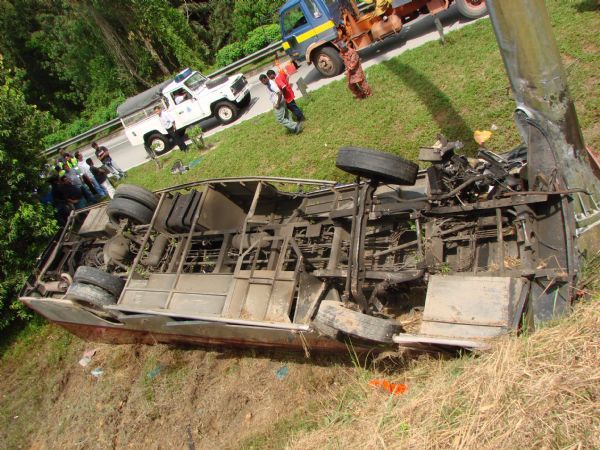 A bus that had a run-off road crash in Malaysia. Image credit: John Mumford
A bus that had a run-off road crash in Malaysia. Image credit: John Mumford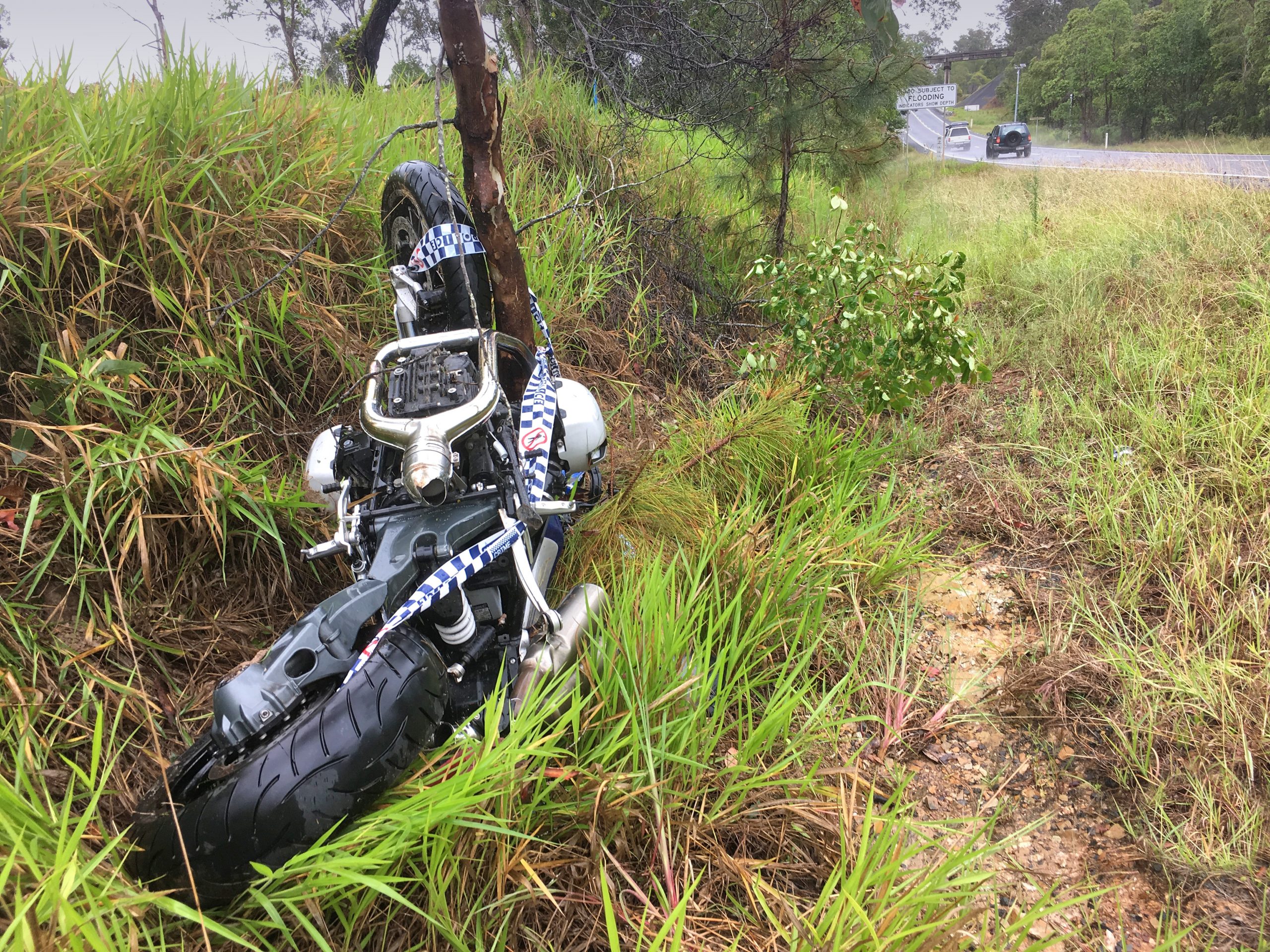 A motorcycle run-off road crash into a tree. Image credit: iStock
A motorcycle run-off road crash into a tree. Image credit: iStock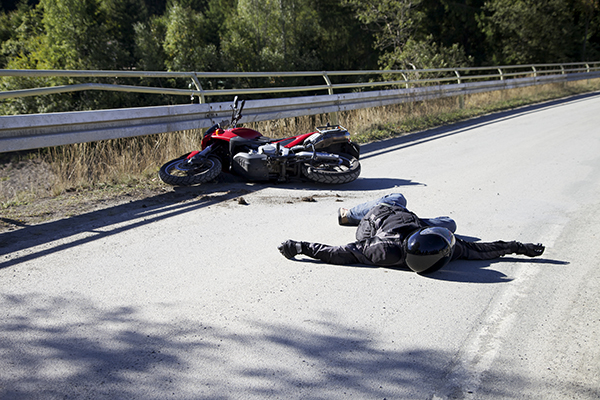 A motorcyclist wearing a helmet and protective clothing in a crash. Image credit: iStock
A motorcyclist wearing a helmet and protective clothing in a crash. Image credit: iStock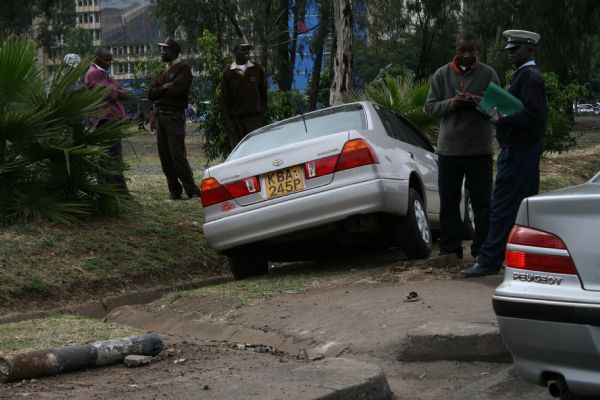 A run off road crash in Kenya. Image credit: iRAP
A run off road crash in Kenya. Image credit: iRAP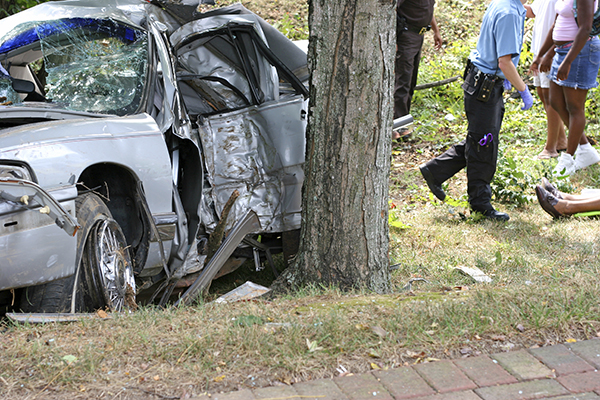 A run off road crash involving a car and tree. Image credit: iStock
A run off road crash involving a car and tree. Image credit: iStock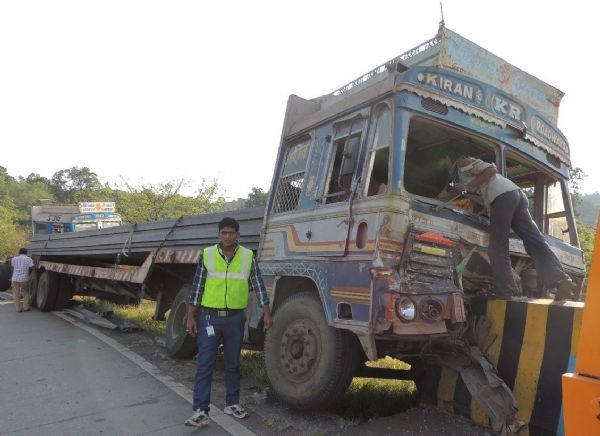 A run-off crash. Barrier end terminals must be designed to minimize risk upon impact. A crash attenuator would be a suitable end treatment in this case. Image credit: JP Research India
A run-off crash. Barrier end terminals must be designed to minimize risk upon impact. A crash attenuator would be a suitable end treatment in this case. Image credit: JP Research India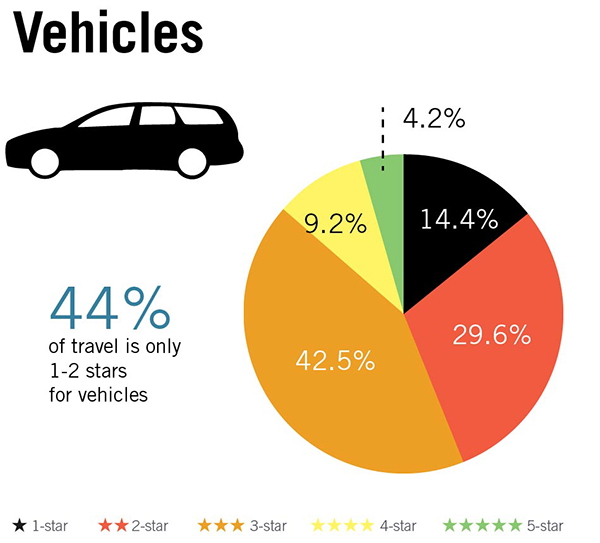 Vehicle occupant Star Ratings by road user type based on a 358,000km sample of roads across 54 countries. Image credit: iRAP
Vehicle occupant Star Ratings by road user type based on a 358,000km sample of roads across 54 countries. Image credit: iRAP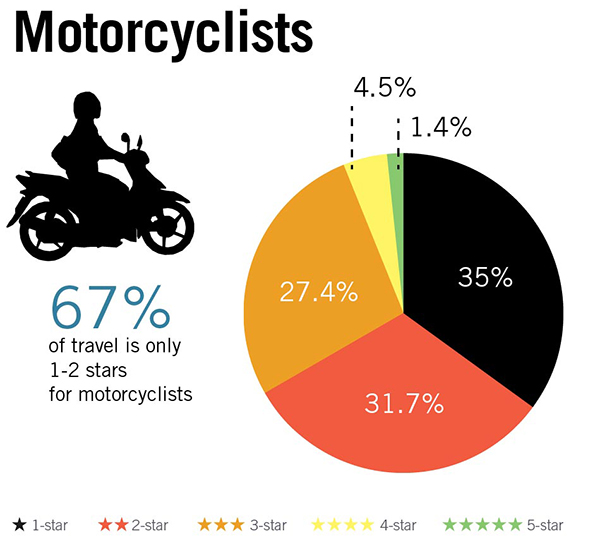 Motorcyclist Star Ratings by road user type based on a 358,000km sample of roads across 54 countries. Image credit: iRAP
Motorcyclist Star Ratings by road user type based on a 358,000km sample of roads across 54 countries. Image credit: iRAP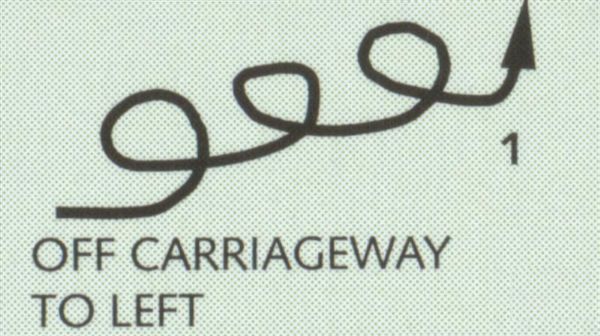 Off Carriageway to left graphic
Off Carriageway to left graphic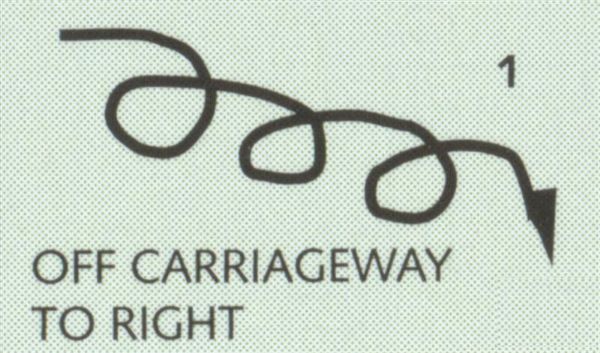 Off Carriageway to right graphic
Off Carriageway to right graphic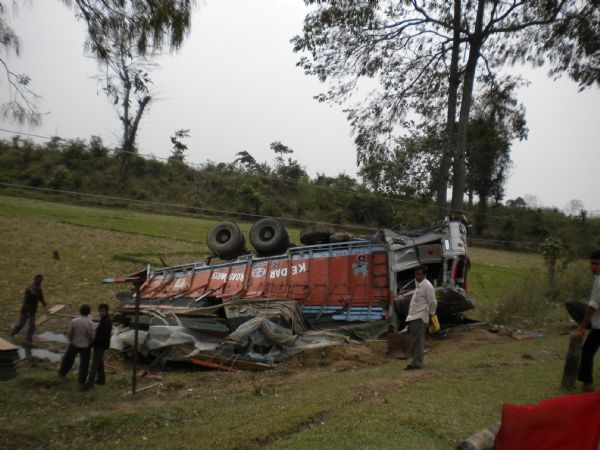 Overturned truck in Assam, India. Image credit: A. Tiwari
Overturned truck in Assam, India. Image credit: A. Tiwari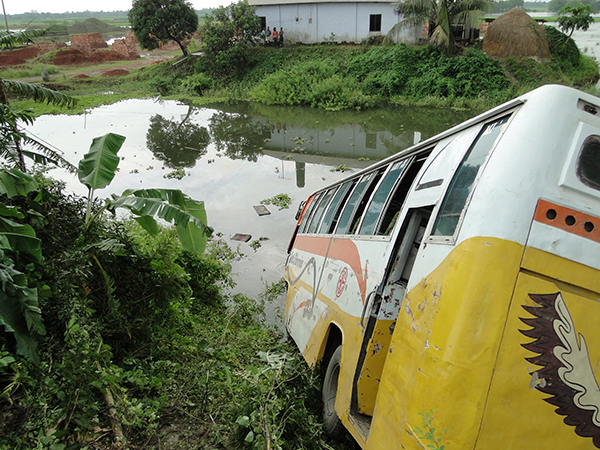 Run off road crash in Bangladesh. Image credit: Greg Smith
Run off road crash in Bangladesh. Image credit: Greg Smith








